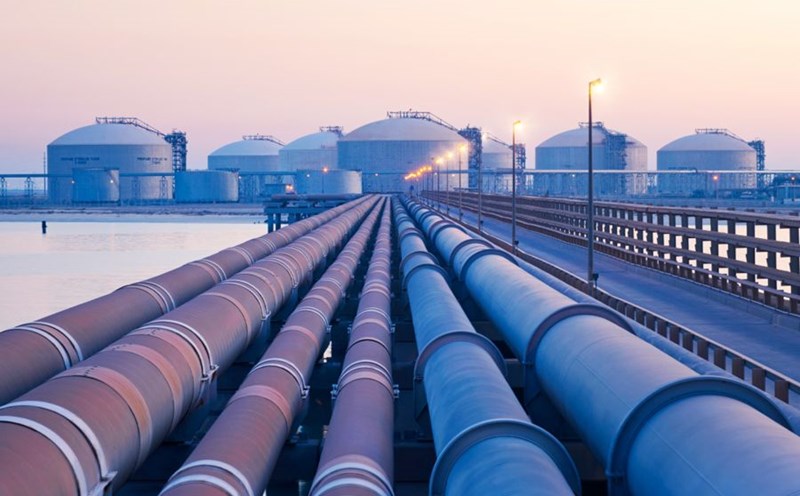Global oil prices have fallen sharply to their lowest level since the beginning of 2021. In the context of escalating trade tensions and weakening global consumption demand, the petroleum market is facing a serious risk of supplyovers.
Euronews reported that on the morning of May 5, Brent futures fell to 4.6%, to 58.50 USD/barrel, while WTI oil prices plummeted by nearly 5%, down to 55.53 USD/barrel - both of which hit their lowest level since February 2021.
The sharp decline came after OPEC+, an alliance between the Organization of the Petroleum Exporting Countries (OPEC) and partners like Russia, announced plans to increase production by 411,000 barrels/day in June. The total increase from April to June will reach nearly 1 million barrels/day, marking a drastic step in withdrawing the production cuts that have been maintained since 2023.
According to observers, this is not only a technical move but also a " punition" targeting members like Iraq, which are believed to have exceeded production quotas in the past.
In the US, retail gasoline prices are expected to continue to cool. The US Energy Information Administration (EIA) predicts that the average regular gasoline price this summer (from April to September) will be only 3.10 USD/gallon, 20 cents lower than the forecast in March.
If as forecast, this will be the lowest price tinhed by inflation since 2020 - the time when the COVID-19 pandemic paralyzed global fuel demand.
While output is "opened", consumption demand is clearly weakening. Oil prices have fallen more than 20% since mid-January, driven by a series of factors such as trade tensions and blurred global economic outlook.
Mr. Kyle Rodda - market analyst at Capital.com Australia - commented: "Currently, oil prices are largely driven by demand. With OPEC+ no longer holding the hand of supply, any recovery in oil prices will depend on positive signals from the global economy, first of all, US trade policy.

Last week, oil prices fell more than 7% - the sharpest decline in a month - after a series of negative economic data from the US and China. In the US, GDP in the first quarter declined, labor indicators deteriorated. In China, manufacturing activity fell to a 16-month low.
President Donald Trump said last weekend that the US could cut tariffs on China at some point, implying the possibility of restarting trade negotiations. Meanwhile, Beijing said it is assessing the possibility of dialogue after receiving a message from Washington.
Oil traders are closely monitoring the developments between the two largest economies in the world. A trade deal, no matter how small, can be a rare light to help restore market confidence.
Although it has announced a plan to increase production, OPEC+ is still open to adjustment if the market continues to deteriorate.
The next meeting of OPEC+ is scheduled to take place on June 1, which is expected to shape a long-term strategy in the context of the world entering a new, unstable consumption cycle.
In the short term, consumers and businesses can benefit from cheaper gasoline prices such as reducing transportation, production and living costs.
However, behind the immediate joy are worrying signals: a decline in demand reflecting a gloomy economic outlook, while the imbalance between supply and demand could make the energy market more unpredictable than ever.












